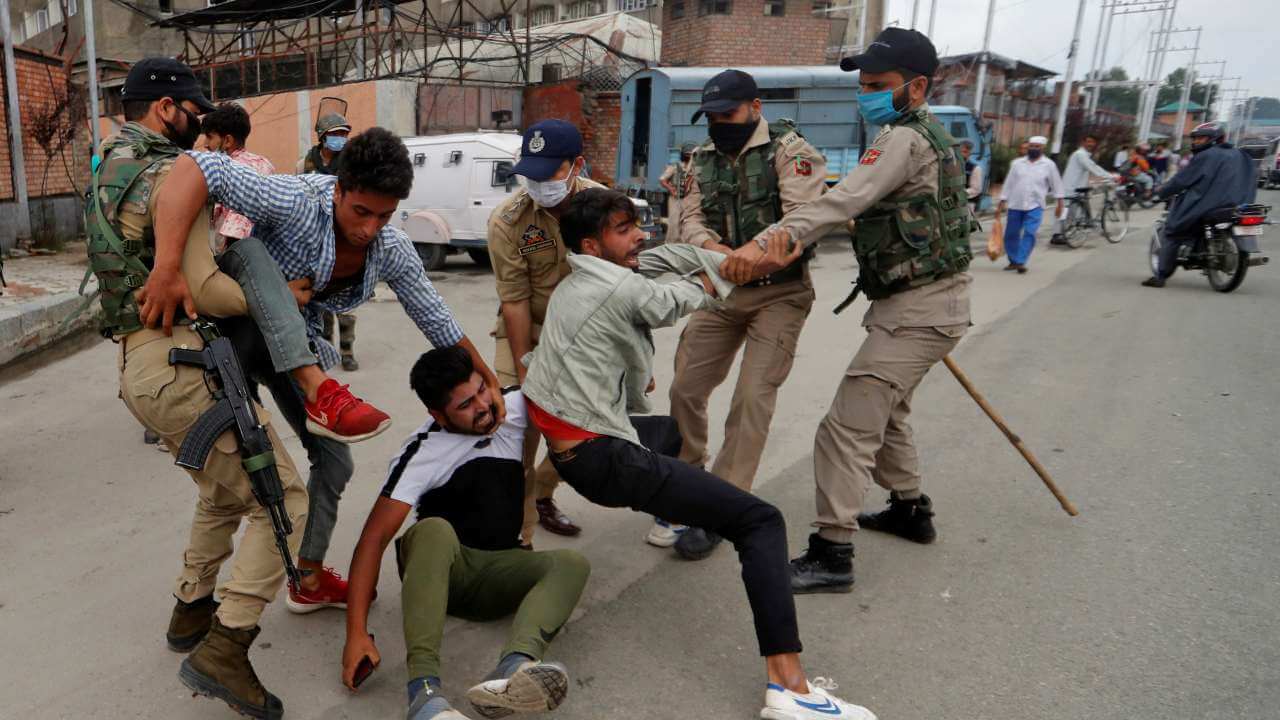On Saturday, the last day of the ten-day Muharram period for Shia Muslims across the world, violent clashes broke out between those participating in processions and Indian security forces in the Kashmir valley. The Jammu and Kashmir police reported that 30 to 40 members of their force were also injured during the clash. The local police’s representatives reported that the conflict was a result of the violation of the security and health restrictions in place. A senior member of the police force said, “We were requesting people to follow the protocols but they didn’t listen. Instead, they threw stones and left at least 30-40 police personnel injured … There were at least 12 violent incidents but the situation is being brought under control. We have also made some detentions today.”
Since the violent separatist campaign in 1989 in Kashmir Valley, the region has seen an official ban on Muharram processions on the 8th and 10th day of the Muharram. However, this year, the processions were banned in entirety because of the COVID-19 outbreak. On Thursday, Pandurang K Pole, Kashmir’s Divisional Commissioner, warned against gatherings for Muharram in light of the rising COVID-19 cases in the area, and subsequently announced a ban on such processions.
According to officials in Srinagar’s Zadibal district, around 200 to 250 locals that were injured in the clashes, with witnesses reporting that most sustained injuries from pellet guns. Locals in the region recounted that the gathering was a “peaceful procession” and that the action by the security forces was “unprovoked.” The councillor for the Zadibal district, Tanveer Pathan, said, “All around the country, religious processions are being allowed but it is only in Kashmir that carrying out religious duties results in vicious punishment.”
These clashes occurred as authorities clamped down by imposing restrictions in the Shia-dominated regions in the Kashmir Valley to prevent people from gathering for the procession. Witnesses reported the deployment of paramilitary forces and the police into the area. Security forces were deployed on all the access points to the Zabidal district. Consequently, a prominent Shia-organisation, the Anjuman-e-Sharie, urged locals in the region to refrain from gathering for the procession this year and abide by the security and health restrictions in place. Several other religious leaders and organisations also requested followers to comply with the advisories by the authorities that were in place to curb the spread of COVID-19 during these gatherings.
Over the past week, over 200 participants of such processions were detained in Srinagar and around seven were arrested for chanting separatist slogans. The region also saw violence in Bemina, Srinagar on Friday, which was the 9th day of Muharram, during which around 30 people were injured.
Responding to these reports, Pakistan’s Foreign Office spokesperson, Zahid Hafeez Chaudhri, condemning the incidents, said, “Indian occupation forces in occupied Kashmir have been using pellet guns and lethal cartridges since 2010 resulting in a large number of deaths and grievous injuries to thousands of Kashmiris, including women and children.” He also said that India was in “clear violation of the UN basic principles on the use of force and firearms by law enforcement officials and the UN code of conduct for law enforcement officials”.
Security Forces Clash With Locals During Processions for Muharram in Kashmir Valley
On Thursday, Kashmir’s Divisional Commissioner had announced a ban on all gatherings for Muharram in light of the rising COVID-19 cases.
August 31, 2020

SOURCE: REUTERS
